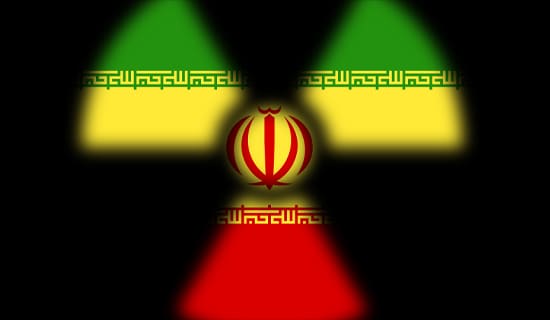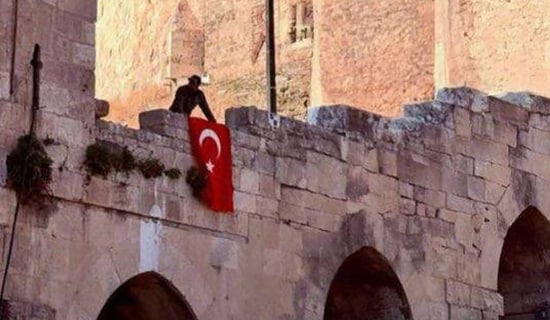In a June 3, 2020 article in the London-based daily Al-Arabi Al-Jadid, Marwan Kabalan, a Syrian political analyst who resides in Britain, highlights the similarities between the conflicts in Syria and in Libya, including in terms of the foreign powers involved in both countries. He warns the Libyans that if their internal wars continue they are likely to completely lose their independence and to find themselves in the same situation as Syria: the foreign powers that have interfered in their war will spill Libyan blood, destroy their country and finally also take over the negotiations aimed at finding a solution to their conflict. These foreign powers, he added, are doing everything they can to promote their own interests in Libya, so as to appropriate its oil and divide its resources among themselves after the war ends. Kabalan urges the Libyan leaders from both sides to learn from the Syrians’ mistakes and reach an arrangement as soon as possible, in order to avoid repeating the Syrian scenario.
The following are translated excerpts from his article: [1]

Marwan Kabalan (Source: Madardaily.com, October 12, 2017)
"Syria has attracted considerable global attention in recent years as the arena of the major conflict in the Middle East, between forces aspiring to strengthen their position amid a shifting regional and international order. But now it appears that the campaign has moved – with almost identical players – to Libya in the southern Mediterranean [Basin], which, from an economic perspective, is a much bigger prize than Syria, because it has the largest oil reserves in Africa: about 48 billion barrels.
"Like in Syria, the Libyan conflict started out as a popular revolution and uprising against an oppressive regime, which [responded] with a policy of violence, thus providing ambitious regional and international forces with an opportunity to intervene in order to realize their own interests. The conflict escalated recently following several developments, among them Egypt's announcement last month of the establishment of a coalition comprising Egypt, Greece, Cyprus, the UAE and France to stand up to Turkey and impede its growing influence in Libya and in the [entire] Mediterranean Basin.
"In response, the Turkish national oil company [the Turkish Petroleum Corporation] charged the [Libyan] Government of National Accord [GNA] in Tripoli [headed by Fayez Mustafa Al-Sarraj] to grant it immediate permission to start drilling for oil in Libya's exclusive economic zone [in the Mediterranean], which was delineated late last year in an agreement setting out [Libya's] maritime border with Turkey…[2] Furthermore, the Turkish military support for the GNA started to bear fruit, for it enabled the GNA to deal a series of defeats to the forces of retired general Khalifa Haftar in the Tripoli area and along the western coast.
"[But] the most prominent recent development is that there are early signs of direct Russian military intervention in Libya [in support of] Haftar's forces, which until now have been supported by Russia [only] informally, via the Wagner [Group] mercenaries[3]… Russia has suddenly sent MiG and Sukhoi planes to Libya, apparently in preparation for direct involvement in the campaign in the west of the country.
"All these developments are reminiscent of what happened in Syria in 2015 [when Russia first dispatched forces to that country], with just a few small differences. For example, in Libya France has sided with Russia against Turkey… despite its opposition to Russia’s policy of establishing its influence in Syria. As for the U.S., just like in the case of Syria, it is divided internally and hesitates to become directly and deeply involved in the Libyan conflict. This is despite the fact that, in 2011, it was behind the downfall of [then Libyan leader Muammar] Gaddafi, when it headed the NATO aerial attacks [on Libya, i.e., Operation Unified Protector] which marked the end of that miserable colonel’s 40-year rule. The differences of opinion among the Americans are revealed in the position of President Trump – who appears to be closer to the UAE, Egypt and France – versus the position of the American establishment, especially the Department of Defense, which opposes the spread of Russian [influence] in the Mediterranean Basin… While the Department of Defense is not happy with the Turkish policy in Syria, it tends to support Turkey’s position in the conflict with Russia in Libya, as a substitute for direct American involvement there…
"Space does not permit to specify [all of] the many similarities between the Syrian and Libyan situations. But to put it briefly, the conflict in and over Libya is headed for another escalation. One needn't be an expert analyst to see what is coming, for it is enough to read a Syrian [history] book to know what will happen in Libya: Soon the Libyans will completely lose the ability to make [independent] decisions and will become experts, observers, and commentators about the foreign intervention in their country's affairs. Later, when [the foreign powers] have grown tired of fighting by shedding the blood of the Libyans; when they have tested their weapons on the Libyans and their country, so as to increase their share of the global arms market; and when they have demolished the final wall left standing in the country, they will sit around the negotiation table [to propose] reconstruction initiatives.
"If the Libyan politicians have a modicum of insight, which was lacking in their Syrian brothers, they should hurry and resolve their differences, and reach an agreement about the distribution of resources and power among them – before the others [i.e. the foreigners] divide them up among themselves. The wise man is the he who learns from [the mistakes of] others."
[1] Al-Arabi Al-Jadid (London), June 3, 2020.
[2] For more information see MEMRI Special Dispatch No. 8418, Media Of Egypt And Its Allies: Memoranda Of Understanding (MOUs) Between Turkey And Libya's Government Of National Accord (GNA) Reflect Turkey's Hegemonic Ambitions, Warmongering, December 17, 2019.
[3] The Wagner Group is a private Russian military company whose director is known for his close ties to Russian President Vladimir Putin and whose activities conform to Russian foreign policy. For more information about Russian military involvement in Libya, see MEMRI Special Dispatch 8771, After Defeat Of Russia's Ally Khalifa Haftar, Russia Sends Planes To Protect Haftar And Its Investment In In Libya Amidst Domestic Criticism, May 28, 2020.








